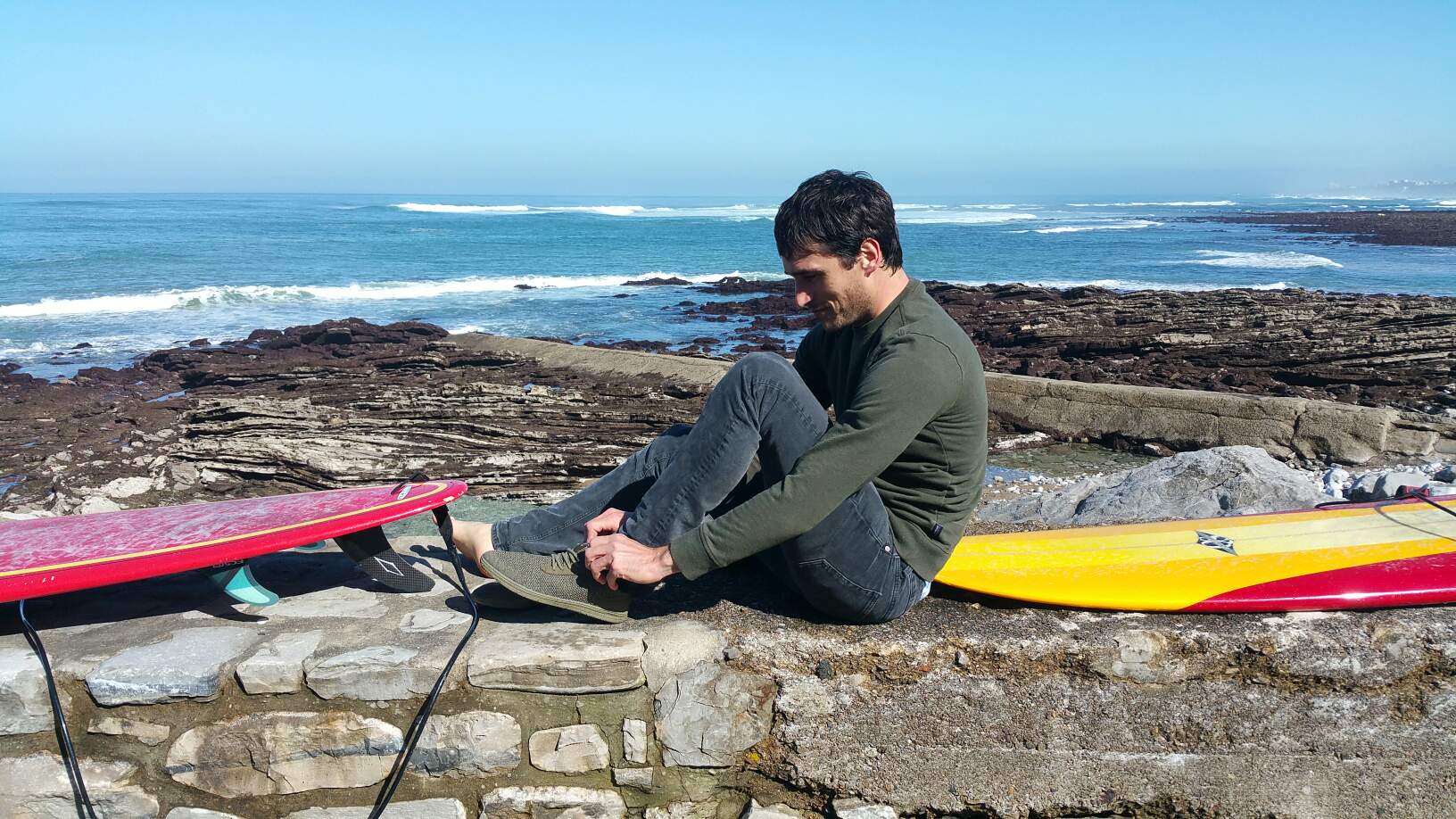From the beginning, in addition to creating sustainable footwear, we have been committed to supporting wildlife conservation. Currently 1% of all SAOLA sales go to Mwalua Wildlife Trust.
Originally from the region, Patrick initially wanted to improve the living conditions of wildlife and the inhabitants of his native village. Since then, the trust has taken on many forms of wildlife conservation and education.
WHY SUPPORT MWALUA WILDLIFE TRUST?
Fascinated by Patrick's dedication and his commitment to the preservation of wildlife, it didn't take long to convince SAOLA founder, Guillaume.
For many years, water has become a rare commodity in Africa. Due to global warming, regions are becoming increasingly arid and water points are becoming scarce. Patrick wanted to make an impact, he wanted to improve accessibility to water and reduce conflict between humans and wild animals.
Patrick and his team support the local populations by creating sustainable water points to last over time, both for the animals and for the villagers.
Construct access points to water strategically placed for wildlife in the form of mud holes or water tanks, which allow efficient and natural use of water sources.
Throughout the year, this small team works hard to create access points to water. Mud is added to water holes, dug into the earth, so that the soil does not absorb the water. Water trays are another method used to create sustainable access points.
Once these holes or water tanks are dug, Patrick's team then fills them via tanker truck allowing them to transfer water from point A to a point B. It takes about $250 to fill each hole or tank.
Reforestation to restore the natural habitat of wildlife.
But that's not all. Patrick is committed to the preservation of wildlife, and recently launched a reforestation program. This program gives new life to the natural habitat of wildlife.
Finding solutions to human-wildlife conflicts through better access to natural resources and more advanced agricultural practices.
Conflict between wild animals and humans is common in Kenya, essential resources are scarce and sharing can sometimes be complicated. Attracted by human culture, wild animals (elephants in particular) come to eat the corn and peas that the villagers plant to support themselves. Recognizing the problem, Patrick suggested planting sunflowers as this plant is not eaten by elephants and requires little water to develop. Thus, animals and humans can live in harmony.
As the project unfolds, growing sunflowers will also benefit local farmers, who can sell or press the sunflower to make oil. In addition, the residues can be used for poultry and livestock. A win, win!
In addition, the sunflower plant attracts bees. Bringing sunflowers to the Tsavo soil will allow local people to preserve bees and these honey producers will also benefit the inhabitants. This project initiated by Patrick is already underway!

Increase awareness of wildlife conservation and environmental protection in schools and communities.
Educating the locals on conservation of fauna and flora is increasingly important, especially in Africa where it is constantly threatened. We in the west are very sensitive to the protection of the environment but certain regions of Africa do not have the same priorities. Nevertheless, Patrick is determined to raise awareness of these issues and protect Mother Nature.

HOW DOES SAOLA HELP?
Thanks to you, we donate 1% of our sales to Mwalua Wildlife Trust.
This percentage is equivalent to several thousand euros which has allowed Patrick to create sustainable water systems, and now allows Patrick to invest in the creation of beehives and plant sunflower seeds. Patrick hopes to expand his field of action to neighboring villages. It is through these programs that the environment, the living conditions of residents and wildlife can improve.
To put it simply, thanks to these funds, Patrick and his community are gradually restoring their ecosystem and preserving wildlife.
Over the coming years, we wish to increase the percentage of sales to support associations, like Patrick's, who are committed to the preservation of the environment and wildlife.











